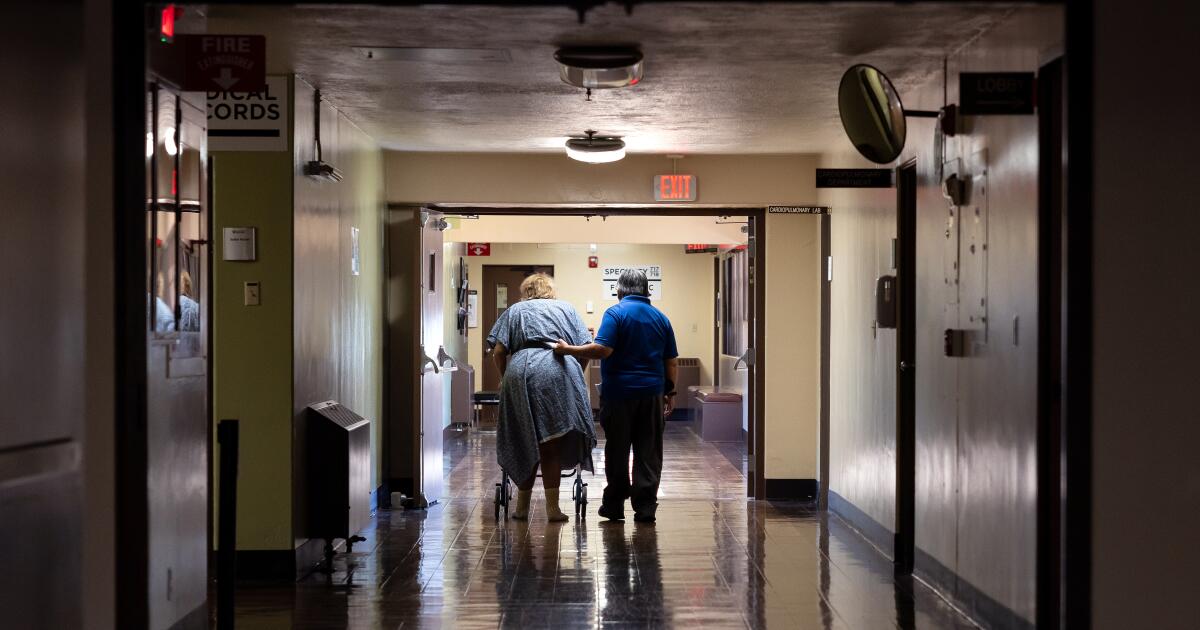The closure of Glenn Medical Center in Willows, California, has raised significant concerns about the future of healthcare access in the region. On October 21, 2023, the hospital, which had served the community for over 70 years, officially shut its doors, leaving many residents without essential medical services.
As hospital staff removed medical equipment from the vacant patient rooms, Theresa McNabb, a 74-year-old patient, prepared to leave after a six-week stay. McNabb expressed her anxiety about returning home while still undergoing treatment for a severe infection. She worried about managing daily tasks like shopping and cooking without immediate access to medical care. “I feel a little anxiety,” she stated as she reflected on the uncertainty facing her and others in the community.
The closure of Glenn Medical Center not only impacted McNabb and other patients but also resulted in the loss of numerous jobs for healthcare workers and served as a critical blow to the local economy. The hospital had been one of the largest employers in Willows, a town of approximately 6,000 residents situated about 75 miles north of Sacramento. Local officials, like Glenn County Supervisor Monica Rossman, voiced fears that the closure would lead to preventable deaths as residents, particularly the elderly without transportation, would delay seeking necessary medical treatment.
The hospital’s closure has been attributed to a recent decision by the federal government to revoke its “Critical Access” designation, which had allowed it to receive higher reimbursement rates. The hospital’s location, just 32 miles from the nearest facility, fell short of the 35-mile requirement set by federal regulations. Despite efforts from local officials and hospital administrators to seek an exemption, their appeals went unanswered, leading to the facility’s financial collapse.
According to a June 2023 analysis by U.S. Senator Alex Padilla and colleagues, many more rural hospitals across California may face similar risks due to impending federal healthcare cuts. Peggy Wheeler, vice president of policy for the California Hospital Association, referred to the situation as the beginning of a potential “tidal wave” of hospital closures in rural areas.
The economic implications of the hospital’s closure extend beyond job losses. Local leaders, including Willows Vice Mayor Rick Thomas, highlighted the importance of healthcare facilities in attracting new businesses. “We’ve lost 150 jobs already from the hospital closing,” he remarked, expressing concern about the town’s ability to recover economically.
Glenn Medical’s history reflects both its struggles and its significance in the community. Initially opened in November 1950, the hospital became integral to Willows, providing essential services to generations of families. However, financial difficulties plagued the facility, leading to its bankruptcy in 2000. It was later rescued by American Advanced Management, a private company focused on distressed rural hospitals.
Despite improvements in patient care and community trust in recent years, the hospital faced an insurmountable challenge when it lost its Critical Access designation. Following a review by the Centers for Medicare & Medicaid Services, officials determined that the hospital did not meet the required distance from other healthcare facilities, ultimately jeopardizing its financial viability.
As the hospital’s last day approached, staff members expressed their grief over the impending closure. Nurse Amanda Shelton shared a poignant moment with McNabb, gifting her a sweater as a parting gesture. “It’s not every day that it will be the last patient I’ll ever have,” Shelton said, fighting back tears.
The broader implications of Glenn Medical’s closure are a source of fear for many in Willows. Longtime resident Rose Mary Wampler, who has relied on the hospital for care, voiced her concerns about the challenges of traveling over 30 miles for medical treatment. “It looks like somebody just shut off the whole city; there’s nowhere to go get help,” she said, reflecting the anxieties felt by many.
As the healthcare landscape continues to shift, the residents of Willows and similar rural communities face uncertain futures without access to essential medical services. The closure of Glenn Medical Center serves as a stark reminder of the vulnerabilities that rural hospitals face and the critical need for comprehensive healthcare solutions in underserved areas.
